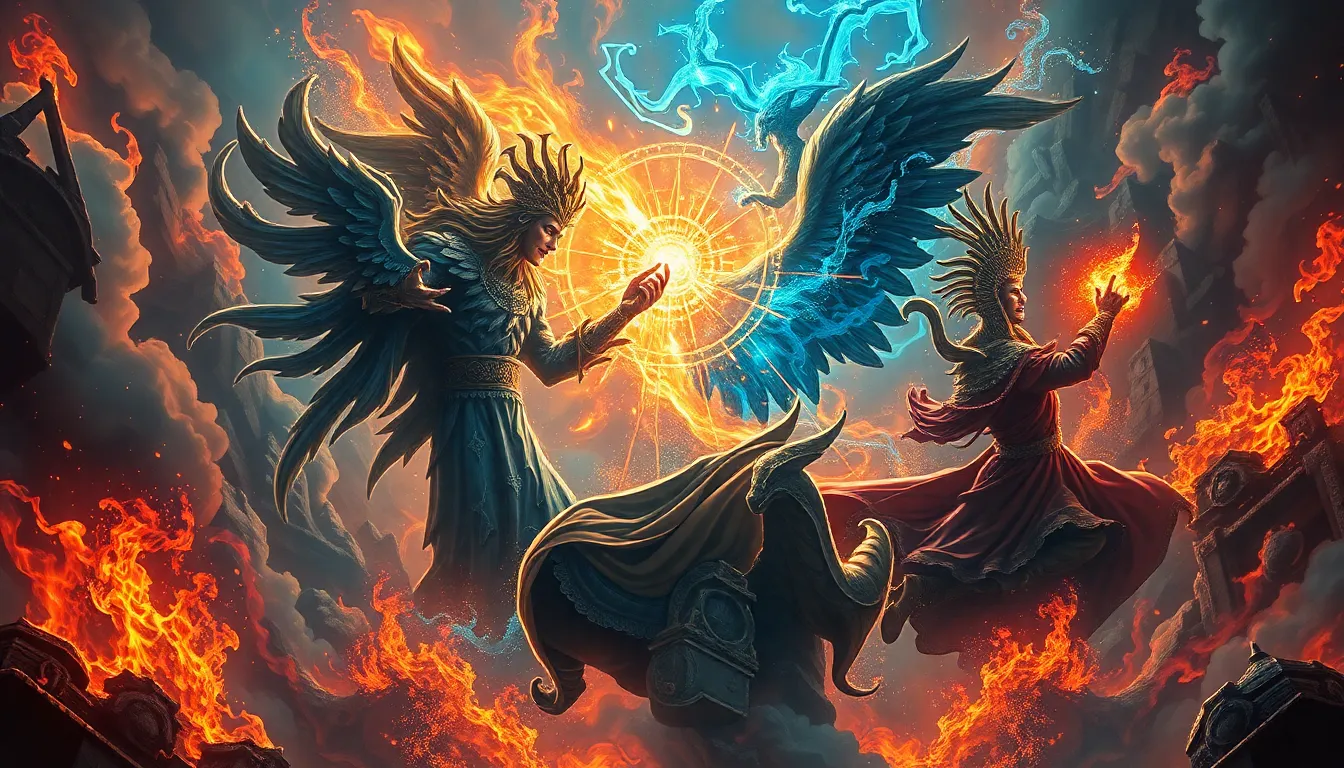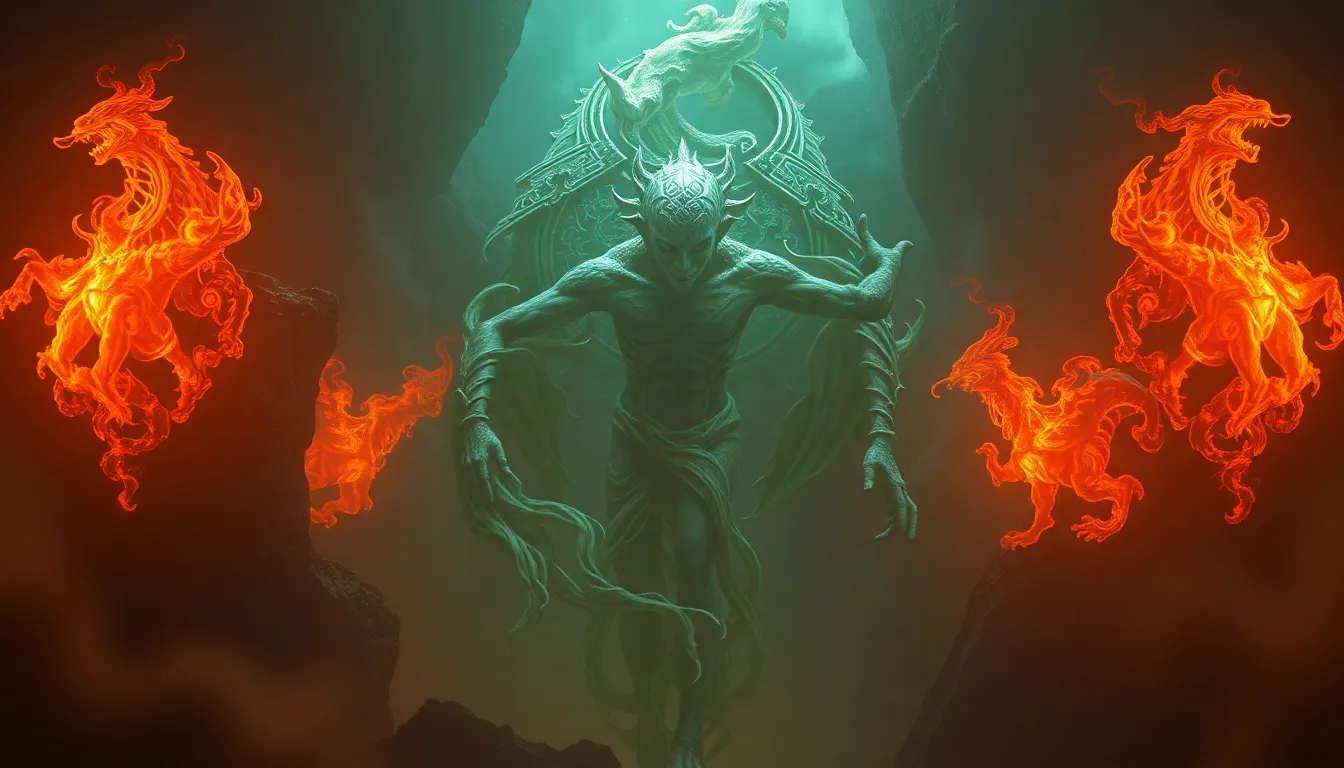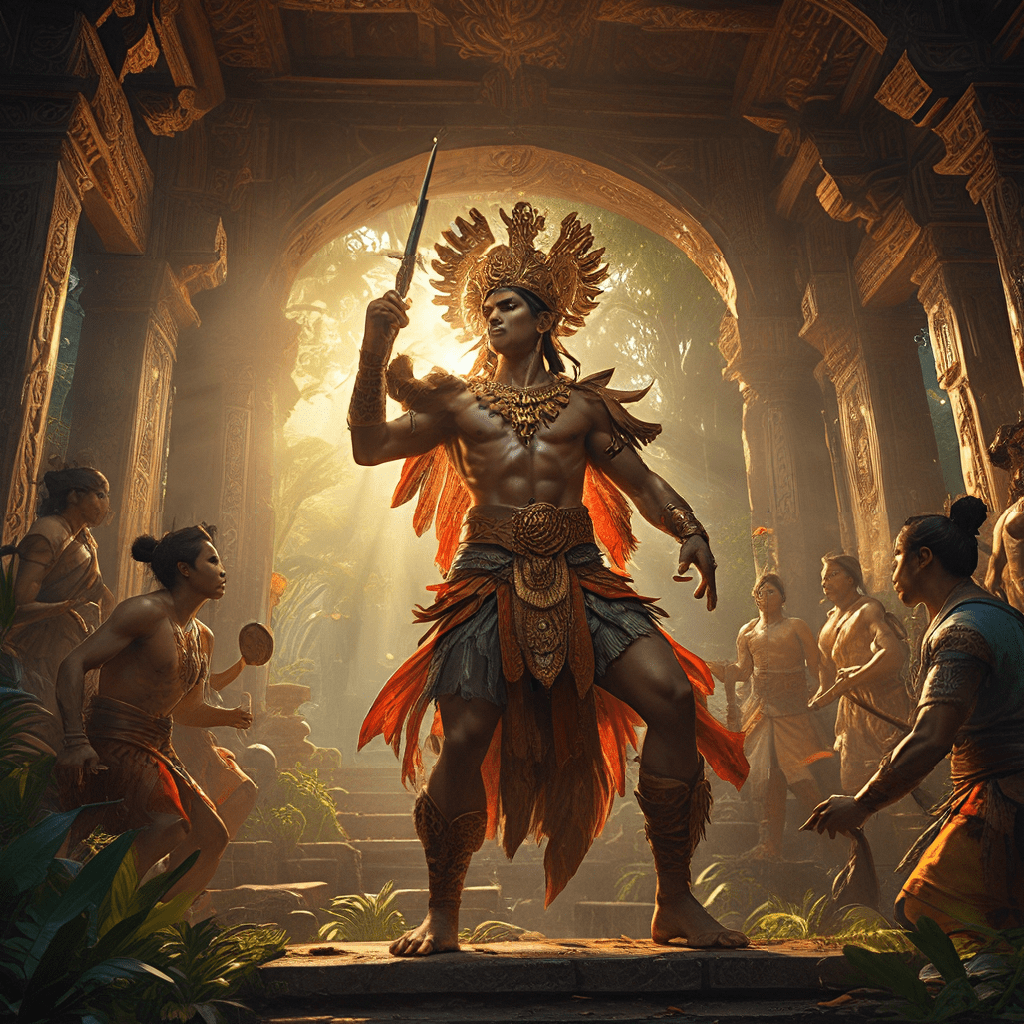The Mythical Dimensions of Cultural Heroes in Society
1. Introduction to Cultural Heroes
Cultural heroes are individuals who embody the ideals and values of a society, often celebrated for their extraordinary deeds, courage, and moral integrity. These figures can be historical or fictional, yet they hold a significant place in the collective consciousness of a community. The importance of cultural heroes extends beyond mere admiration; they serve as symbols of identity, resilience, and aspiration, shaping societal norms and inspiring future generations.
The mythical dimensions of cultural heroes often involve narratives that elevate their status to a near-divine level. Through stories and myths, these heroes transcend ordinary human experiences, embodying the hopes, fears, and dreams of the people they represent. Understanding these dimensions is crucial in recognizing the profound impact cultural heroes have on society.
2. The Role of Myth in Hero Construction
Myth plays a fundamental role in the construction of heroes, serving as a narrative framework that provides context and meaning. Myths function to:
- Explain the origins of heroes and their extraordinary capabilities.
- Provide moral lessons that resonate with cultural values.
- Foster a sense of belonging and identity among community members.
Through these functions, myths shape the perception of heroes, transforming ordinary individuals into larger-than-life figures. For instance, the myth of Hercules not only highlights his strength but also reflects themes of perseverance and redemption. Similarly, the tales of Robin Hood emphasize justice and equity, resonating with the ideals of community and fairness.
3. Archetypes of Cultural Heroes Across Different Cultures
Across various cultures, certain archetypes emerge that define the essence of cultural heroes. Common archetypes include:
- The Warrior: Embodies bravery and strength, often fighting for a cause (e.g., Achilles).
- The Sage: Represents wisdom and guidance (e.g., Gandalf from “The Lord of the Rings”).
- The Rebel: Challenges the status quo and fights for justice (e.g., Mulan).
Comparative studies of these archetypes reveal significant insights into societal values. For instance, Hercules from Greek mythology exemplifies physical strength and heroic feats, while Mulan, a Chinese cultural hero, showcases intelligence and valor in the face of adversity. Both figures reflect their respective cultures’ ideals and aspirations.
4. The Evolution of Cultural Heroes in Modern Society
The perception of cultural heroes has evolved significantly from ancient times to the contemporary era. Historically, heroes were often defined by their physical prowess and divine favor. However, as societies changed, so did the traits that constituted heroism. Modern heroes are often characterized by their social contributions, advocacy for justice, and ability to inspire change.
Case studies of modern cultural heroes highlight this evolution:
- Nelson Mandela: A symbol of resilience and equality, Mandela’s fight against apartheid transformed him into a global icon of peace and justice.
- Malala Yousafzai: As an advocate for girls’ education, Malala represents courage in the face of oppression and a commitment to human rights.
These figures demonstrate how heroism can manifest in various forms, often reflecting societal challenges and aspirations for a better future.
5. The Psychological Impact of Cultural Heroes
The phenomenon of hero worship has profound psychological implications, influencing both individual and collective identities. Cultural heroes serve as role models, shaping aspirations and moral development among their followers. The impact of heroes manifests in several ways:
- Inspiration for personal growth and achievement.
- Promotion of community values and collective identity.
- Encouragement to challenge injustices and advocate for change.
By embodying ideals that resonate with societal values, cultural heroes foster a sense of purpose and direction, helping individuals navigate their own life paths.
6. The Intersection of Cultural Heroes and Mythical Narratives
Storytelling techniques play a crucial role in elevating cultural heroes to mythical status. Folklore, literature, and media contribute to the construction of heroic narratives that blend fact with fiction. These narratives often include:
- Exaggerated accomplishments that highlight the hero’s abilities.
- Challenges and trials that test the hero’s character.
- Transformative experiences that lead to personal growth.
Examples of narratives that blend these elements include the tales of King Arthur and the Knights of the Round Table, which fuse historical elements with mythological themes to create a compelling image of heroism in medieval society.
7. Critiques and Controversies Surrounding Cultural Heroes
Despite their revered status, cultural heroes are not without controversy. The darker sides of heroism often reveal flawed individuals whose actions may contradict their heroic image. This complexity can lead to polarizing perceptions among different groups. Key considerations include:
- Flawed heroes who experience a fall from grace, challenging the narrative of perfection.
- The implications of cultural appropriation in the portrayal of heroes from marginalized communities.
- How heroes can become symbols of divisive ideologies, leading to conflicting interpretations.
These critiques encourage a more nuanced understanding of heroism, recognizing that cultural heroes can embody both admirable qualities and significant flaws.
8. The Role of Technology and Media in Shaping Cultural Heroes
In the digital age, technology and social media play a pivotal role in shaping the perception and creation of cultural heroes. The impact of these platforms includes:
- Amplifying voices of marginalized heroes who challenge traditional narratives.
- Distorting the mythical dimensions of heroes through sensationalism.
- Creating viral heroes whose impact is often transient yet profound.
Case studies of viral cultural heroes, such as social media activists, highlight how technology can democratize heroism, allowing diverse narratives to emerge and resonate with global audiences.
9. The Future of Cultural Heroes in a Globalized World
As society becomes increasingly interconnected, the concept of cultural heroes is likely to evolve. Predictions for the future of cultural heroes include:
- The emergence of new heroes who address pressing global issues, such as climate change and human rights.
- A shift towards inclusive narratives that celebrate diverse cultural backgrounds.
- The potential for heroes to unite communities across borders, fostering global solidarity.
In this context, cultural heroes will continue to reflect the ideals and challenges of their times, inspiring future generations to strive for a more just and equitable world.



